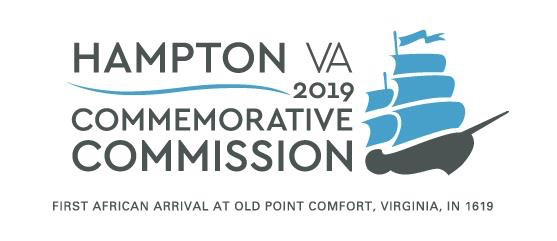Uncategorized
Hampton Educators Learn Details of 1619 African Arrival

HAMPTON, VA
Thirty Hampton City Schools educators spent mornings July 23-26 learning the details regarding the first African Arrival in English North America from subject matter experts. The initiative is part of an effort to clarify the details of the 1619 arrival so that youth of Hampton, Virginia, and the nation learn the facts of this pivotal occurrence in American history.
As witnessed and recorded by John Rolfe, the first tobacco planter in the Virginia colony, on August 20, 1619, the White Lion entered the Chesapeake Bay, docked at Point Comfort (present day Hampton) with Africans from the country Angola, of the Bantu culture. They spoke the languages of the Kimbundu and Kikongo. Many were literate and hailed from highly organized societies.
Two of those Africans, named Antoney and Isabell, became servants of Captain William Tucker, Commander of the fort at Point Comfort. Around 1623 or 1624, the union of Isabell and Antoney birthed the first African child in English North America, named William Tucker. The other arriving Africans were interspersed within the Virginia colony, from Elizabeth City County to Jamestown.
Hampton 2019 Commemorative Commission Co-Chairs Dr. Colita Fairfax and Lt. Col. (Ret.) Claude Vann, were among the discussion leaders.


 Black Arts and Culture1 week ago
Black Arts and Culture1 week agoBHM Spotlight: Nathan Richardson: Poetic Portrayal of Frederick Douglass

 Black Arts and Culture1 week ago
Black Arts and Culture1 week agoBHM Spotlight: Ken Wright: 40 Years Of d’Art Center As A Founding Artist

 Black History7 days ago
Black History7 days agoThe First Star of the Grand Ole Opry

 Obituary1 week ago
Obituary1 week agoPasses: Raheema Turner Shabazz, Norfolk Business Owner

 National News1 week ago
National News1 week agoRev. Jesse L. Jackson, Sr.: “Keep Hope Alive!” “I Am Somebody!”

 Black History1 week ago
Black History1 week agoHighway Marker Project for Va. Lynching Sites

 Politics5 days ago
Politics5 days agoCongresswoman Eleanor Norton Holmes To Retire Next Year As “Dean Of The CBC”

 Black History4 days ago
Black History4 days agoBeyond the Cold: 5 Surprising Ways Frederick McKinley Jones Rewrote Modern History



















